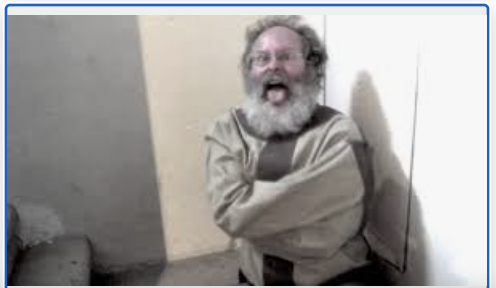It's enough to drive you crazy
/“Charles Kopec, 42, a neuroscientist in Livingston, N.J., said he and his wife don’t travel, eat at restaurants or enter friends’ homes.”
WSJ: Why some Americans are still isolating from COVID-19
Laura Jennings, a 61-year-old novelist in St. Paul, Minn., said she has her groceries placed in her trunk at the curb and rarely sees anyone other than her son, William Theriac. She is comfortable indoors when they are both wearing N95 masks, she said, and if he has been mitigating infection risks in his own activities recently. She said despite being fully vaccinated, she is concerned that her history of respiratory problems would make her vulnerable to severe Covid-19.
“I need to have control over my safety, and when I have that control I feel a lot better, even if it means I’m alone with the control,” she said.
Mr. Theriac, 27, said he is an extrovert who works from home and struggled with the isolation of living alone during the pandemic. He hosts a trivia night at a brewery now, but wears a mask. His closest friends have agreed to tell each other if they feel the slightest sniffle, he said. Despite the precautions he takes to make his mother comfortable, he said he doesn’t get to see her as much as he would like.
“There are times I can’t see her because the restrictions I’d have to go through for a two-week period would literally crash my mental health,” he said.
Determining what constitutes rational behavior as the virus continues to circulate is difficult and subjective, said Charles Marmar, chairman of psychiatry at NYU Langone Health and a specialist in post-traumatic stress disorder. People who are at low risk of serious disease and who remain isolated from many of their friends and family might want to discuss their perceived risk with a mental-health professional, he said.
Charles Kopec, 42, a neuroscientist in Livingston, N.J., said he and his wife don’t travel, eat at restaurants or enter friends’ homes. They are traumatized by his wife’s experience as a doctor treating Covid-19 patients during the early months of the pandemic, he said, and don’t want to spread the disease to vulnerable people. Dr. Kopec said they want to limit patients’ exposure-risk from other people they may encounter.
Mary Morris, 43, said the pandemic exacerbated her anxiety disorder, setting off panic attacks and depression. She said she left her teaching job at a community college in southern Illinois after it called people back to campus.
She has limited her indoor social circle to family and a friend she met while their young children were on a playground wearing masks in the dead of winter. The women hold masked playdates indoors, trusting each other to follow strict Covid-19 safety protocols between meetings.
Her adult daughter and her grandson haven’t been as restrictive, she said, and Ms. Morris has been less comfortable seeing them regularly. She said she was willing to hug them only once, during a lull in Covid-19 transmission this spring.
“I felt naked,” she said. “We do our video calls, but my grandson spends a lot of time with his other grandma.”
Recently, Ms. Morris made a new friend on Twitter: Ms. Jennings, the novelist in Minnesota.
“She was posting some really funny comments,” Ms. Jennings said. “She could take teasing from a stranger.”
They have reserved hotel rooms in the fall halfway between their homes, where they plan to hang out outdoors. The risks of navigating a hotel lobby in masks are worth strengthening a friendship between two people who remain more cautious than most, they said.
“When I look to the future, I imagine myself doing an occasional talk in a bookstore or something,” Ms. Jennings said. “So I guess I see some hope in the future that we’ll be able to do some stuff.”

